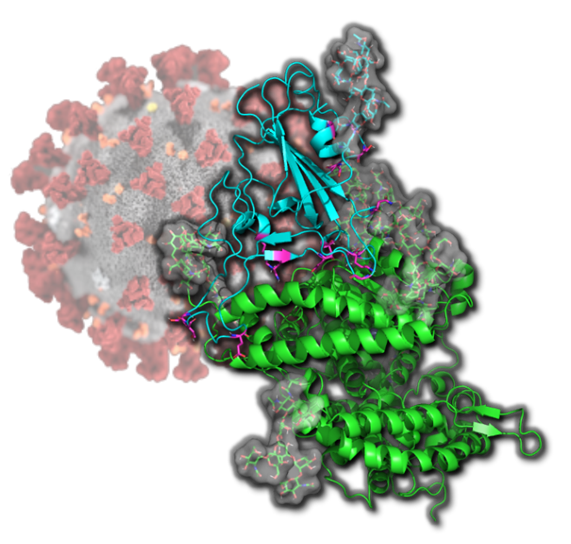Researching 34 amino acids

The previous mutants that caused the pandemic differed from the original Wuhan variant in only a few amino acids, although the spike proteins that interact with the proteins of the host cell consist of hundreds of amino acids. Conversely, the new omicron variant surprisingly differs from the Wuhan strain in 34 amino acids. In other words, the S-protein of the virus has undergone considerable changes. The background to these (i.e. whether the mutation emerged in a human with a weakened immune system or an animal) is still unknown to researchers.
András Perczel and his colleagues are researching the changes in the spatial structure caused by these modifications and are studying how the “appearance” and behaviour of the virus have transformed due to the mutations. There are changes in the charge values and movement of the proteins, and the pattern of interactions, which may be related to the severity and spread of infection. The virus binds to human cells in a different way and researchers can reconstruct the molecular picture of this “encounter”.
 The photograph shows the interaction between the tip of the spike protein and the human receptor protein.
The photograph shows the interaction between the tip of the spike protein and the human receptor protein.
The study summarising the research results will be hopefully published soon in the Journal of the American Chemical Society (JACS) by Zsolt Fazekas, PhD candidate, Dóra Karancsi Menyhárd, senior research fellow, András Perczel, university full professor.
The Laboratories of Structural Chemistry and Biology at the Department of Organic Chemistry as well as the ELKH-ELTE Molecular Modelling Research Group also conduct varied research related to coronavirus. The group is also involved in simplified antibody development as well as rational drug design. Among other things, they take part in the development of a Hungarian anti-coronavirus drug. The consortium is supervised by Professor Imre Kacskovics.
Earlier, we had an interview with Professor András Perczel about his Széchenyi Prize. The interview is available here (in Hungarian).

